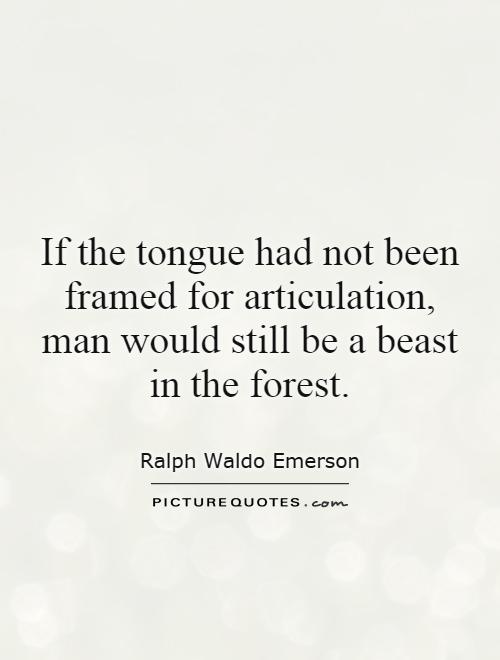If the tongue had not been framed for articulation, man would still be a beast in the forest

If the tongue had not been framed for articulation, man would still be a beast in the forest
Ralph Waldo Emerson, a renowned American essayist, lecturer, and poet, was a firm believer in the power of language and communication. In his essay "Nature," Emerson explores the idea that language is what separates humans from animals, allowing us to articulate our thoughts and emotions in a way that animals cannot. He famously stated, "If the tongue had not been framed for articulation, man would still be a beast in the forest."Emerson's assertion that language is what elevates humans above animals is a profound one. Without the ability to communicate through speech, humans would be unable to express their thoughts, feelings, and ideas in a meaningful way. Language allows us to share our experiences, learn from one another, and form complex societies. It is through language that we are able to create art, literature, and music, and to engage in philosophical and intellectual discourse.
Emerson believed that language is a gift that sets humans apart from the rest of the natural world. He saw language as a tool for self-expression and self-discovery, a means of connecting with others and with the world around us. Without language, Emerson argued, humans would be no different from animals, living purely on instinct and unable to engage in the higher forms of thought and creativity that define our species.
Emerson's ideas about the importance of language are still relevant today. In a world where communication is more important than ever, the ability to articulate our thoughts and feelings is essential for personal growth, social interaction, and intellectual development. Language allows us to connect with others, to share our experiences and ideas, and to create meaning in our lives.












 Friendship Quotes
Friendship Quotes Love Quotes
Love Quotes Life Quotes
Life Quotes Funny Quotes
Funny Quotes Motivational Quotes
Motivational Quotes Inspirational Quotes
Inspirational Quotes